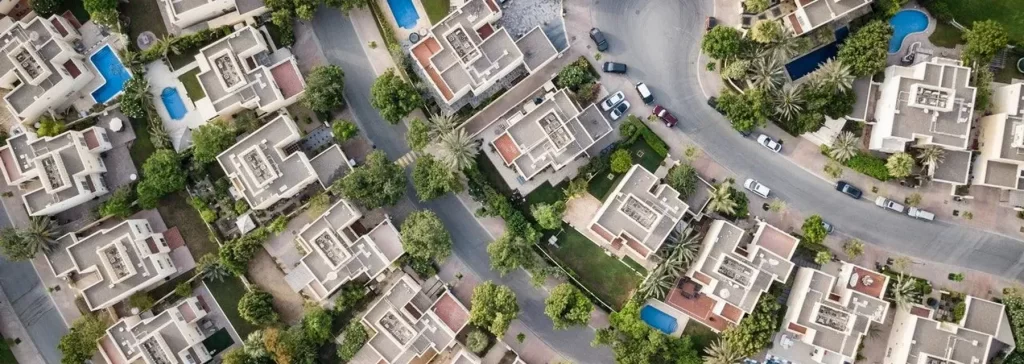
If you are a tenant in Dubai, you may have the occasional disputes with your landlord. While some disputes can be easily resolved through negotiation and communication, others may require legal intervention. If you find yourself in a situation where you need to file a rental dispute, there are certain procedures that you need to follow.
WHEN TO FILE FOR RENTAL DISPUTES IN DUBAI?

Despite the Dubai Land Department putting several systems and policies in place to ensure the protection of tenants’ rights, there are still some landlords who take advantage of their tenants. If you have tried to negotiate and resolve the issue with your landlord but have not been successful, then you may need to file for a rental dispute.
There are certain cases when you can file for a rental dispute in Dubai, these include:
Unreasonable increase in rent – If your landlord tries to increase your rent by more than 5% without a valid reason, you can file for a rental dispute.
Unsafe or unsanitary living conditions – If your rental unit is not up to the minimum standards of safety and sanitation set by the Dubai government, you can file for a rental dispute.
Illegal eviction – If your landlord tries to evict you from your rental unit without a valid reason or a court order, you can file for a rental dispute.
HOW TO FILE FOR RENTAL DISPUTES IN DUBAI?

If you have tried to negotiate with your landlord and have not been successful, you may need to file for a rental dispute.
STEP 1: FAMILIARISE YOURSELF WITH THE RENTAL LAW IN DUBAI
The first step is to familiarize yourself with the rental law in Dubai. This includes understanding your rights and responsibilities as a tenant. The Dubai rental law is known as Law No. 26 of 2007, also known as the Dubai Law of Tenancy.
You have to visit the Rent Committee’s website and fill out the online form.
You will need to provide the following information when filling out the form:
Your personal information – This includes your name, contact details, and Emirates ID number.
Information about your landlord – This includes the landlord’s name, contact details, and Emirates ID number.
Information about your rental unit – This includes the address of the rental unit, the monthly rent amount, and the date when the lease was signed.
Details of the dispute – You will need to provide a detailed description of the dispute and the efforts that you have made to resolve it with your landlord.
After you have submitted the form, you will receive a case number. You will need to use this case number when you visit the Rent Committee office to submit your complaint.
STEP 2: GATHER ALL THE RELEVANT DOCUMENTS
Once you have a clear understanding of your rights and responsibilities, you need to gather all the relevant documents. This includes your tenancy contract, rent receipts, repair bills, and any other relevant documentation.
STEP 3: CONTACT THE RENTAL COMMITTEE IN DUBAI
The next step is to contact the Rental Committee in Dubai. You can do this by visiting their website or calling their hotline. The Rental Committee is responsible for resolving rental disputes in Dubai.
STEP 4: SUBMIT THE NECESSARY DOCUMENTS
Once you have gathered all the relevant documents, you need to submit them to the Rental Committee. You will also need to fill out a form known as the Complaint Form for Arbitration of Rent Disputes.
STEP 5: ATTEND THE HEARING
After you have submitted the necessary documents, you will need to attend a hearing. The hearing will be conducted by the Rent Dispute Settlement Centre. Both you and your landlord will have a chance to present your case and evidence.
STEP 6: WAIT FOR A DECISION
After the hearing, the Rent Dispute Settlement Centre will decide. The decision will be based on the evidence and arguments presented by both parties. Once a decision has been made, the Rent Dispute Settlement Centre will issue an order.
If the Rent Committee decides in your favor, they will issue an order for your landlord to rectify the issue. If the landlord does not comply with the order, they may face penalties such as a fine or imprisonment.
STEP 7: ENFORCE THE ORDER
If you are the tenant, you can enforce the order by going to the Dubai courts. If you are the landlord, you can go to the Rental Committee.
Enforcing the order is important because it ensures that your rights are protected.
FREQUENTLY ASKED QUESTIONS
When it comes to dealing with rental disputes in Dubai, people often ask these questions.
WHEN SHOULD I FILE A RERA COMPLAINT FOR UNFAIR INCREASE IN RENT?
You can file a rental dispute case in Dubai at the RDC against unfair increase in rent if:
- The landlord has increased the rent without giving you proper notice.
- The rent increase is more than 10% of the previous rental amount.
- The new rental amount is not in line with similar properties in the same area.
WHAT ARE THE CONSEQUENCES OF NOT PAYING RENT IN DUBAI?
If you do not pay rent in Dubai, your landlord can file a case against you at the RDC. If the RDC finds in favor of the landlord, they can order you to pay the outstanding rent plus any legal fees and penalties. The landlord can also evict you from the property if you do not pay the outstanding rent.
CAN I FILE A CASE AT THE RDC IF MY LANDLORD EVICTS ME WITHOUT A COURT ORDER?
Yes, you can file a case at the RDC if your landlord evicts you without a court order. If the RDC finds in favor of the tenant, they can order the landlord to reinstate the tenancy and pay any outstanding rent.
WHAT HAPPENS IF I WIN THE CASE AT THE RDC?
If you win the case at the RDC, the landlord will be ordered to rectify the issue. If the landlord does not comply with the order, they may face penalties such as a fine or imprisonment.
WHAT HAPPENS IF I LOSE THE CASE AT THE RDC?
If you lose the case at the RDC, you will have to vacate the property. The landlord will also be entitled to any outstanding rent.
HOW MUCH CAN A LANDLORD INCREASE RENT IN DUBAI?
Decree No. 43 of 2013 explicitly states the maximum percentages by which a landlord can increase the rent. The maximum percentage is 5% for the first year of the tenancy contract, 10% for the second year and 20% for each subsequent year.
WHEN CAN I APPEAL IN A RENTAL DISPUTE?
If you are not satisfied with the decision of the RDC, you can file an appeal at the Rent Dispute Settlement Chamber. The Chamber will review the case and decide.
You can also file an appeal if you believe that the RDC made a mistake in their decision.
WHAT HAPPENS IF I WIN THE APPEAL?
If you win the appeal, the original decision of the RDC will be overturned. If you are the tenant, you can continue to stay in the property. If you are the landlord, you can evict the tenant from the property.
HOW LONG DOES IT TAKE TO SETTLE A RENTAL DISPUTE IN DUBAI?
It usually takes around 2-3 months to settle a rental dispute in Dubai. This includes the time it takes to file the case, attend the hearing, and receive a decision from the RDC.
If you decide to file an appeal, it can take an additional 2-3 months to receive a decision from the Chamber.
In some cases, it can take longer to resolve a rental dispute if there are multiple hearings or if the parties cannot agree on a resolution.
WHAT ARE THE FEES FOR FILING A RENTAL DISPUTE IN DUBAI?
There is a filing fee of AED 1,000 for tenants and AED 2,000 for landlords. There are also fees for attending hearings and for enforcing orders. These fees will be explained to you by the RDC.
WHAT HAPPENS IF I CANNOT AFFORD THE FEES?
If you cannot afford the fees, you can apply for a fee waiver at the RDC. You will need to provide proof of your financial situation and explain why you cannot afford to pay the fees.
The RDC will review your application and decide whether or not to waive the fees.
CAN A REAL ESTATE AGENT FILE A RENTAL DISPUTE ON MY BEHALF?
Yes, a real estate agent can file a rental dispute on your behalf. However, they will need your written authorization to do so.
A real estate agent can also represent you at the RDC if you choose to have them do so.
WHAT HAPPENS IF I MOVE OUT OF THE PROPERTY BEFORE THE END OF THE TENANCY CONTRACT?
If you move out of the property before the end of the tenancy contract, you will be liable for the rent until the end of the contract. This includes any early termination fees that may be specified in the contract.
The landlord may also file a case against you at the RDC if they believe you have breached the tenancy contract.
WHAT HAPPENS IF I DON’T PAY RENT AND THE LANDLORD EVICTS ME?
If you don’t pay rent and the landlord evicts you, they can file a case against you at the RDC. If the landlord wins the case, they will be entitled to any outstanding rent.
The landlord may also file a case against you for breach of contract if you have breached the terms of the tenancy contract.
WHAT HAPPENS IF I BREACH THE TENANCY CONTRACT?
If you breach the tenancy contract, the landlord can file a case against you at the RDC. If the landlord wins the case, they will be entitled to any damages that you have caused.
The landlord may also evict you from the property if you have breached the terms of the contract.
WHAT HAPPENS IF I HAVE AN UNRESOLVED RENTAL DISPUTE WHEN MY TENANCY CONTRACT EXPIRES?
If you have an unresolved rental dispute when your tenancy contract expires, the landlord can file a case against you at the RDC. If the landlord wins the case, they will be entitled to any outstanding rent.
The landlord may also evict you from the property if you have breached the terms of the contract.
WHAT HAPPENS IF I AM EVICTED FROM THE PROPERTY?
If you are evicted from the property, you will need to vacate the premises within 14 days. The landlord will be responsible for changing the locks and removing your belongings from the property.
You will also be liable for any unpaid rent and damages that you have caused.
Can a real estate agent help me with my rental dispute?
Yes, a real estate agent can help you with your rental dispute. They can provide you with information about the Dubai rental market and assist you in negotiating with your landlord.
A real estate agent can also represent you at the RDC if you choose to have them do so.
If you are having difficulty resolving a rental dispute, you may want to consider hiring a lawyer.
What are the consequences of not paying rent?
If you don’t pay rent, the landlord can file a case against you at the RDC. If the landlord wins the case, they will be entitled to any outstanding rent.
The landlord may also file a case against you for breach of contract if you have breached the terms of the tenancy contract.
If you are evicted for not paying rent, you will need to vacate the premises within 14 days. The landlord will be responsible for changing the locks and removing your belongings from the property.
You will also be liable for any unpaid rent and damages that you have caused.
That concludes this guide on rental disputes in Dubai. If you have any further questions, please contact a lawyer or a real estate agent. it is important to remember that you should always try to resolve the issue with your landlord first before taking any legal action.
Read Also:













